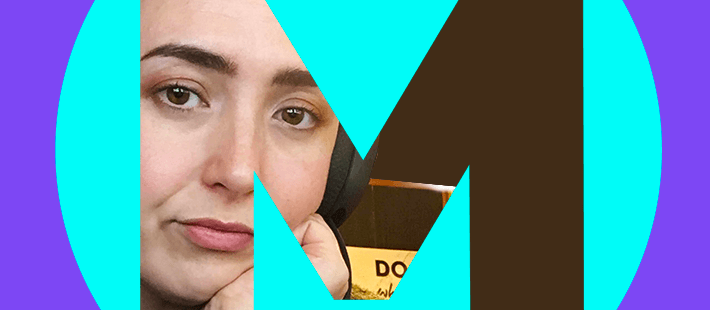At OpenClassrooms, nearly everything is online: course content, project presentations, and our online community. Our Career Paths also include weekly sessions with a mentor via one-on-one video calls that help make students feel fully supported.
Mentors are experienced, working professionals in each field we teach toward who are carefully selected and trained by our Mentorship Team.
The mission handed to all OC mentors is to motivate their students and help them toward their goals. This means supporting students as they progress through their program as they complete their projects and build a robust professional portfolio that will lead them to a major career change or accelerate the path they are already pursuing.
Prospective students often ask us: Who are these professionals? How are they chosen? How do they work with students? Let’s get these FAQ’s answered!
What is mentorship at OpenClassrooms?
Mentorship at OC is a partnership set up to help students as they work toward their diploma. Mentors alleviate some of the typical difficulties of studying online such as lack of accountability, feeling alone, dealing with self-doubt, and having questions that can’t be answered with a quick Google search.
Mentoring provides an opportunity for students to learn from someone with current experience in their target field who can give them a real-world perspective on what they are learning and what their professional life will look like in the future.
As an innovative initiative in online education, mentoring is one of the offerings that makes OpenClassrooms stand out among all other online learning platforms.
During weekly video chats for the entire duration of each Career Path, students learn a lot from their mentors, and so do mentors learn from their students.
Who are the mentors?
Mentors are professionals in the fields our students are studying. They have at least two years of experience in the student’s area of training. Take the Front-end developer Career Path, for example. We have more than 30 mentors who are currently working as developers to guide students. They all have remarkable experience in creating responsive interfaces and dynamic content with javascript. It’s what they do every day.
Today, we have more than 1000 mentors across all areas of expertise such as Development, Data Analysis, UX Design, Project Management, and Career Coaching. And we are building more Career Paths everyday.
So how does it actually work?
Training is divided into two main parts: Each week students work on their projects, consuming course material, and making progress toward their objectives. Then each week they attend a mandatory mentoring session.
During this session, the mentor and the student meet over video conference in a quiet place where they can exchange freely. The sessions last from 45 minutes to 1 hour. It’s a time for an expert in the field and a future professional to share and exchange knowledge.
What do the student and the mentor talk about?
The student shares their progress, talks about the obstacles they’ve encountered and gets some feedback on their project work. It’s also a time to ask any questions they may have.
The mentor is there to share knowledge, best practices, tips, but also to encourage independence and transfer certain interpersonal skills that will be useful in the student’s future profession. The goal is to help the student successfully complete their Career Path, but above all, to find a job they will love.
Does the mentor assign exercises?
We prefer to call them “objectives”. At the end of each session, together the mentor and the student set ambitious yet realistic goals together for the week to come. Maybe they will include finishing the next courses of the program or to make progress on their next project.
When a student finishes a project, they must present their work orally to a different OpenClassrooms mentor. But they work with their own mentor to decide how best to present it.
The goal: work together to decide on ambitious and realistic goals to ensure progress.
How long does mentorship last?
Mentorship lasts throughout the student’s entire program. However, students might not always work with the same mentor.
Is it possible to change mentors?
Of course! Changes take place when the mentor can’t fully accompany the student on a certain project, for example, or if the mentor and student have conflicting schedules.
It is also possible to request a change without any particular reason, if the student wishes to be challenged by experiencing a new work method or if they feel their mentor is simply not a great fit for them.
Mentoring is a unique type of guidance, and it is important for the partnership to work well so that knowledge and skills can be exchanged in the best possible conditions.
To learn more about mentorship or other program details, set a call with one of our Student Success team members.











I’m very interested to participate in this formation . It will make me more important in my community.